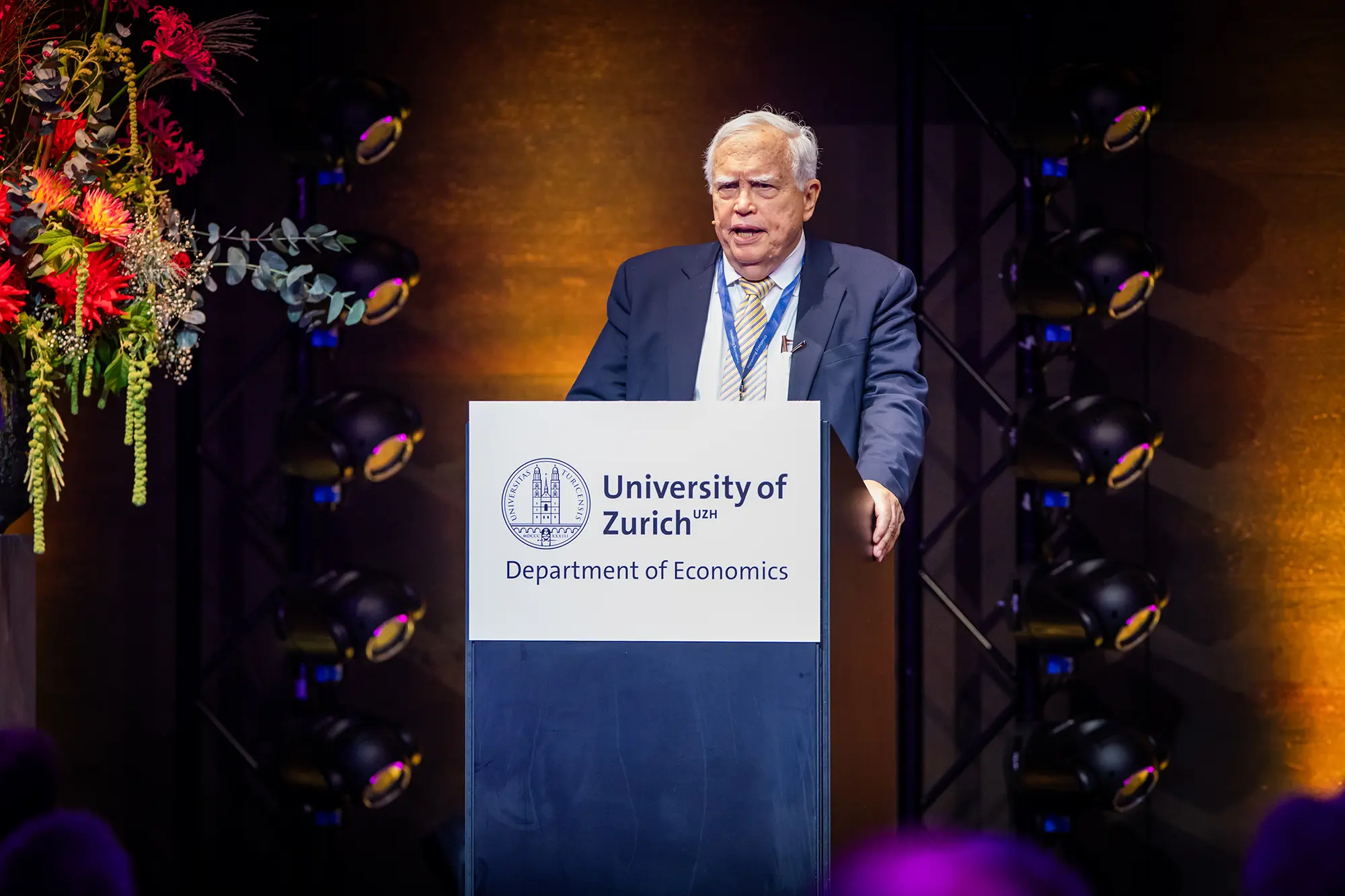“The decline of the family is the root of many social problems”: Nobel laureate James Heckman knows what’s ailing the world
American economist James Heckman criticizes social policy for neglecting the family too much. He also laments a growing victim mentality towards the state. NZZ journalist Albert Steck interviewed the Nobel prize winner prior to his lecture at Department of Economics’ Annual Research Night in Zurich.

This interview by Albert Steck was originally published in German in NZZ on 7.9.2024. Translated and edited for context purposes by the Excellence Foundation Zurich.
Mr. Heckman, in Western societies, we are increasingly investing in costly welfare systems, particularly pensions. You research the effectiveness of social programs. How well are we using these funds?
As society ages, the voting bloc of retirees gains more influence. It’s not surprising that they fight for their benefits. This trend is symptomatic of social policy in general: it’s increasingly dominated by the particular interests of specific groups. Unfortunately, this shift sidelines the common good. You’re surely familiar with former US President John F. Kennedy’s famous quote…
Ask not what your country can do for you – ask what you can do for your country.
Kennedy argued for citizens to adopt a broader perspective beyond their personal interests. This mindset is dwindling. It’s evident not only in pension issues but also in how we overlook the unsustainable financing of our welfare systems in politics.
What do you attribute this shift in mentality to?
Our society is fragmenting into various interest groups, each presenting itself primarily as a victim. These groups become clients of the state, demanding additional resources and redistributions, creating a relationship of mutual dependence.
Could you elaborate?
Let me give you an example: I’ve studied Denmark’s welfare state extensively over many years. It’s one of the most generous and expensive systems. Yet, when you analyze social mobility by education level, Denmark doesn’t outperform countries like the USA. Despite extensive transfers, it fails to significantly improve equality of opportunity for less educated segments of the population.
So, what do you propose to achieve more equality of opportunity?
Whenever a problem arises in politics, the usual demand is for more budget. However, such subsidies often waste resources by addressing symptoms rather than root causes. Take child poverty, an area I’ve studied intensively: We typically define poverty as a lack of money, but these children often lack intact families and supportive environments that nurture their talents.
Isn’t it delicate for the state to intervene in such private matters as family structures?
No, because early childhood interventions achieve by far the greatest impact. Impressive scientific studies show that children receiving more attention at ages three to four go on to lead significantly more successful lives. Similarly, there’s evidence that a three-year-old displaying aggressive behavior is more likely to become a criminal as an adult.
Even if social programs can enhance their impact, Western cultures often resist state intervention in family spheres, fearing state indoctrination.
I understand these concerns, given historical examples from totalitarian states. However, such programs should operate locally, not state-run, such as the successful model in Jamaican slums, where experienced mothers support young parents in child-rearing within their neighborhood.
Why are family structures crucial for improving societal equality of opportunity?
Globally, the family as an institution is declining, contributing to many social problems. Fragmented families lack parental care crucial for children. Maternal care has become scarce and costly. While integrating women into the workforce is progress, it has commercialized families, applying market mechanisms where raising future generations receives little appreciation.
You also criticize school systems for neglecting character education.
Schools heavily focus on intellectual achievement, neglecting the foundation of learning: children improve by making mistakes, building on a foundation of trust nurtured by parental warmth. Instead, ‘helicopter parents’ are increasingly prevalent today.
Does this suggest a need to rediscover the role of mothers?
Who knows a child better than their own mother? We should support both mothers and fathers in caring for their children as best they can. Personalized education forms the best foundation, alongside contributions from daycare centers.
Many countries are seeing a dramatic rise in mental health issues among young people. Do you attribute this to the decline of the family?
Certainly. Better diagnostics aside, mental health heavily depends on family conditions. In weaker families, supporting children becomes challenging. Families are generally under greater stress today, with both parents often working, limiting caregiving resources. Society expects parents to successfully raise their children, treating it as a private matter despite its societal impact. Furthermore, disparities between families exacerbate growing inequality and polarization in society.
What does this mean for the welfare state? Are financial transfers ineffective without proper family structures and societal values?
Indeed, a rethinking is necessary. We need a greater sense of responsibility, with governments setting societal values and citizens taking more responsibility for their actions.
Do you think this sense of duty has been lost?
Yes, which brings us back to Kennedy’s quote: Indeed, I observe a tendency to shift as many responsibilities as possible to the state. How can this change? Ensuring equality of opportunity, especially for children, is crucial. In return, the state should uphold meritocratic principles: rewarding those who excel through special efforts.
But today’s politicians seldom advocate for more meritocracy.
Unfortunately, no. Instead, a victim mentality is spreading, both on the left and right. Politicians try to convince people that they are disadvantaged and treated unfairly. I argue for the opposite: providing people with the necessary tools and incentives to seize opportunities.
The text of the interview has been edited for clarity and brevity. We thank NZZ for permission to use the interview for our website.
